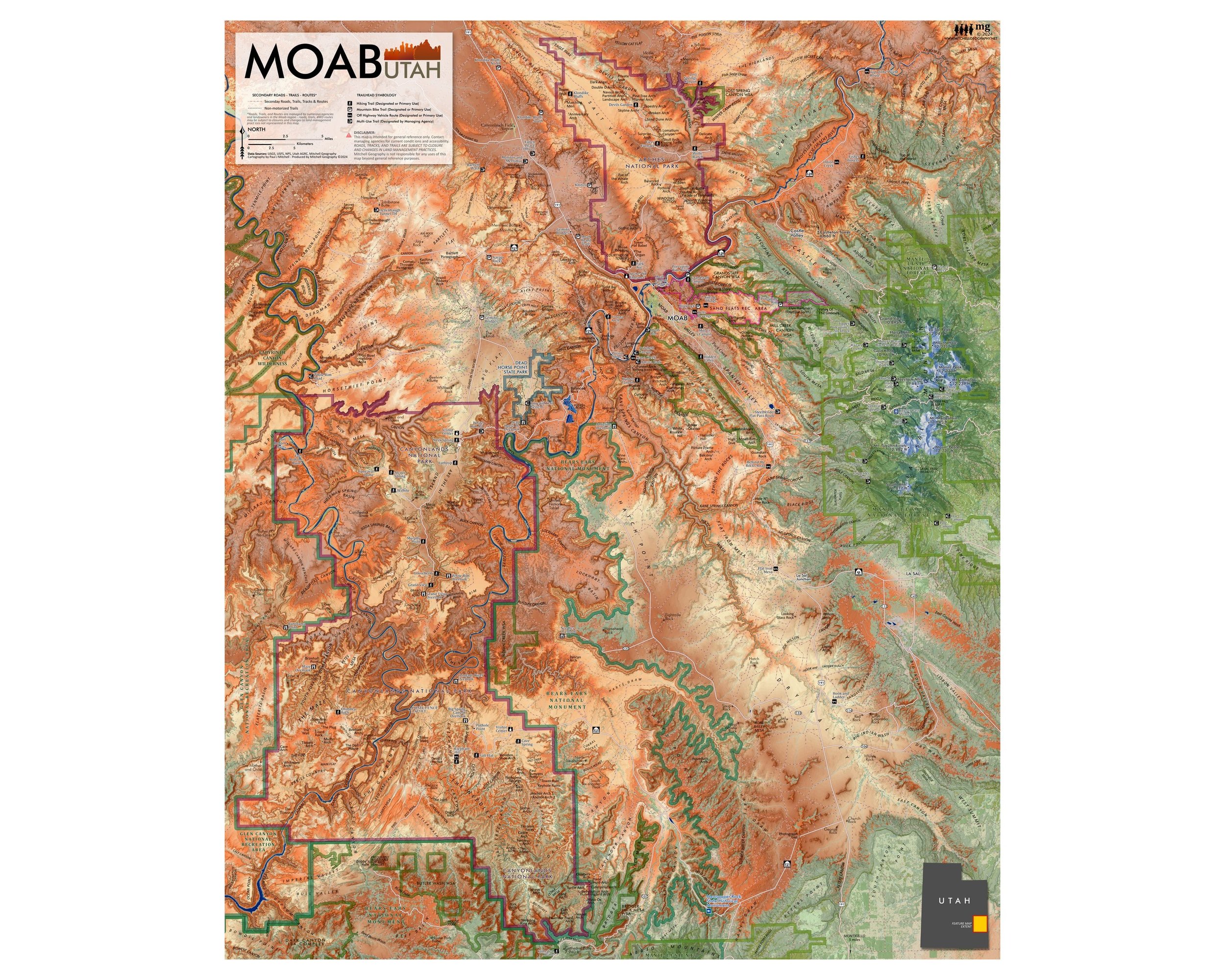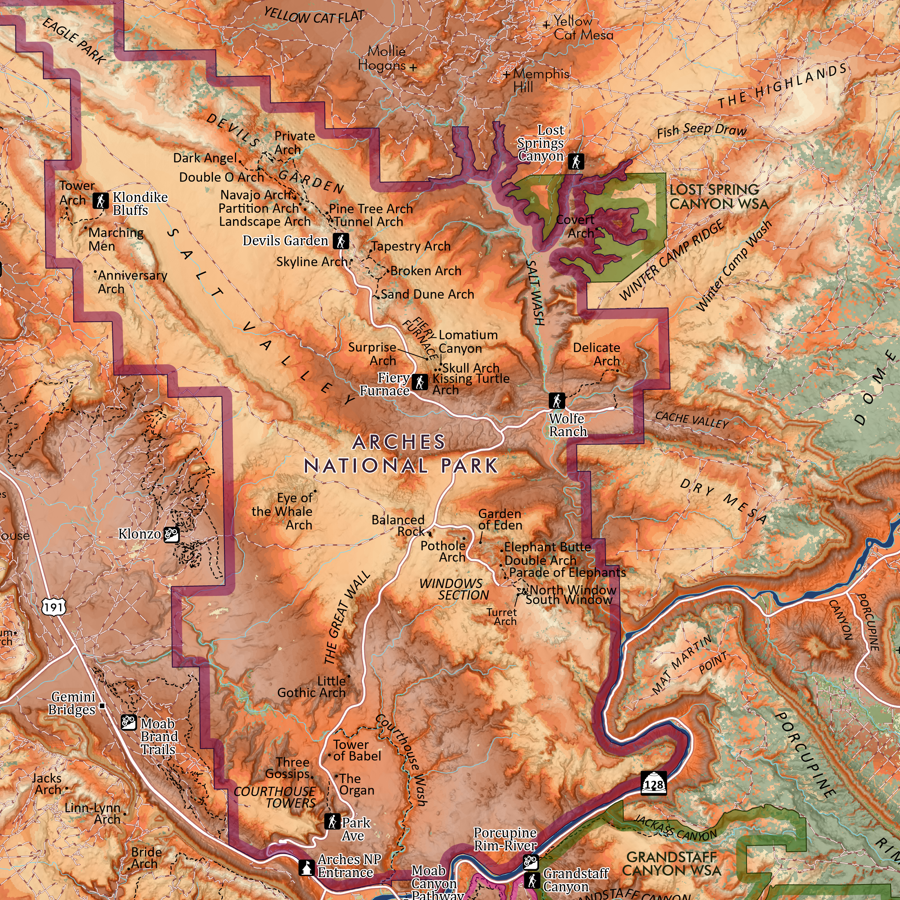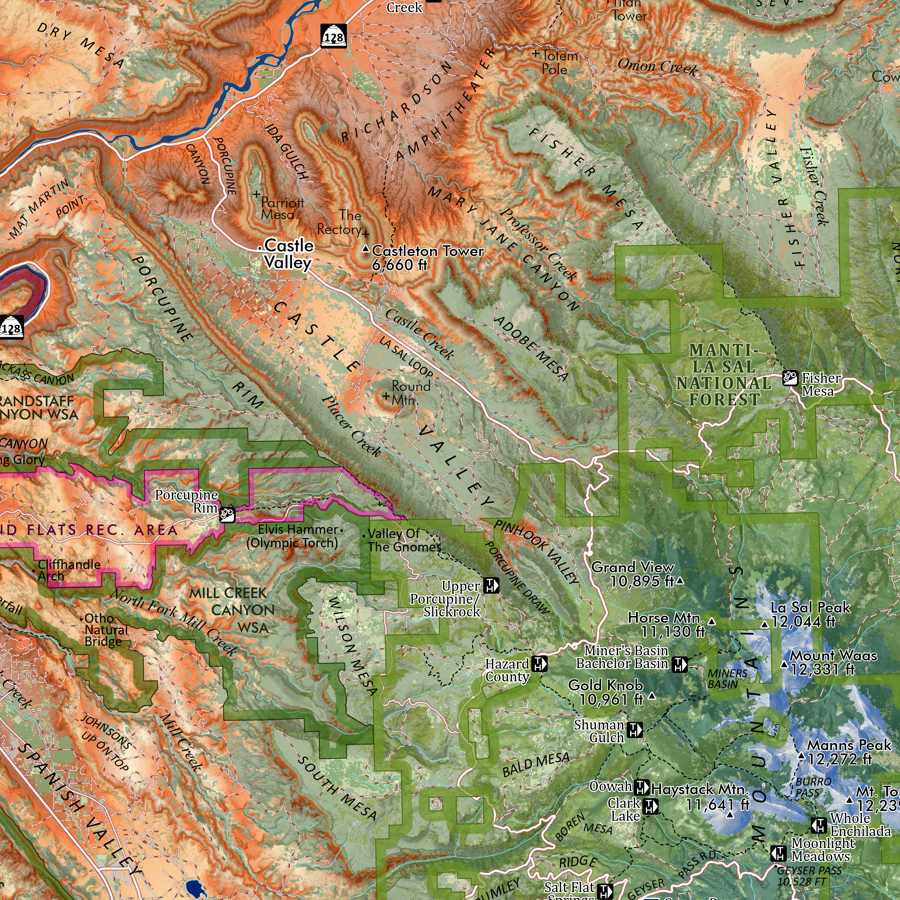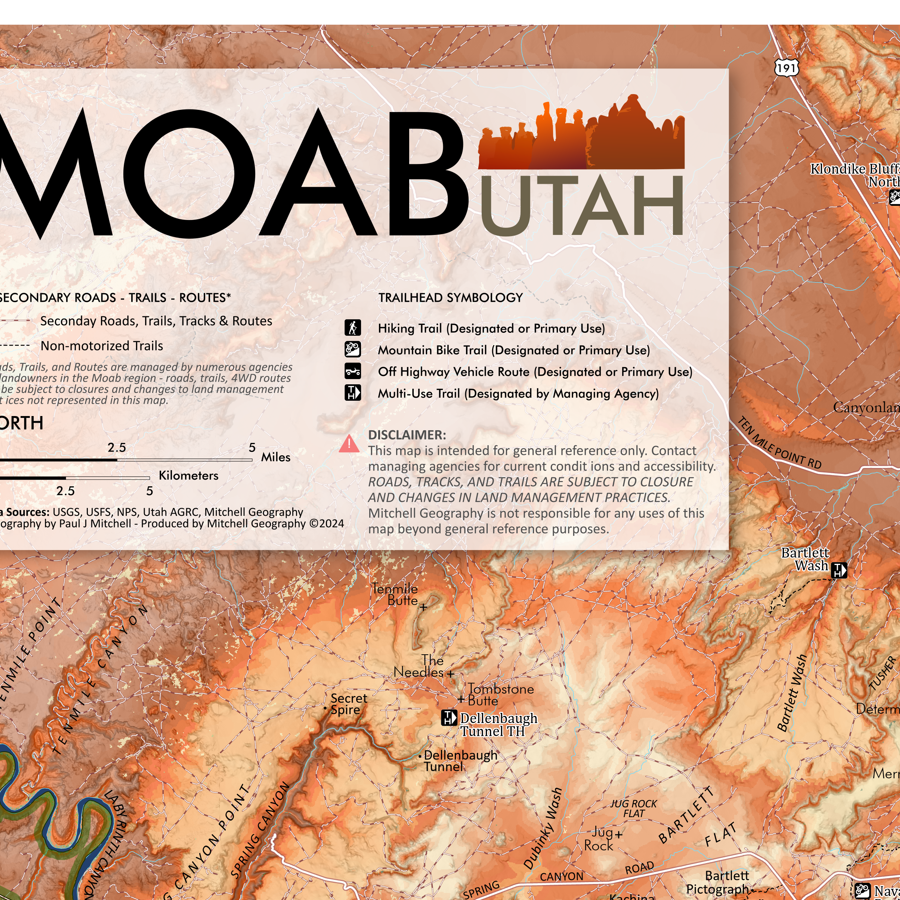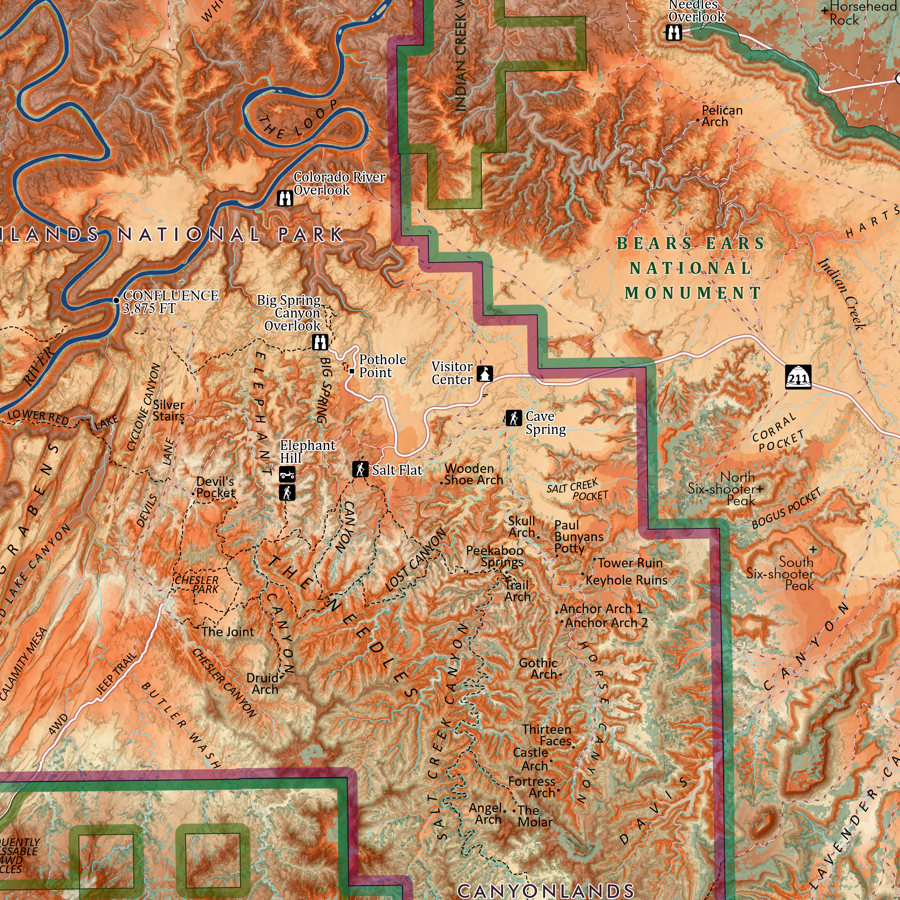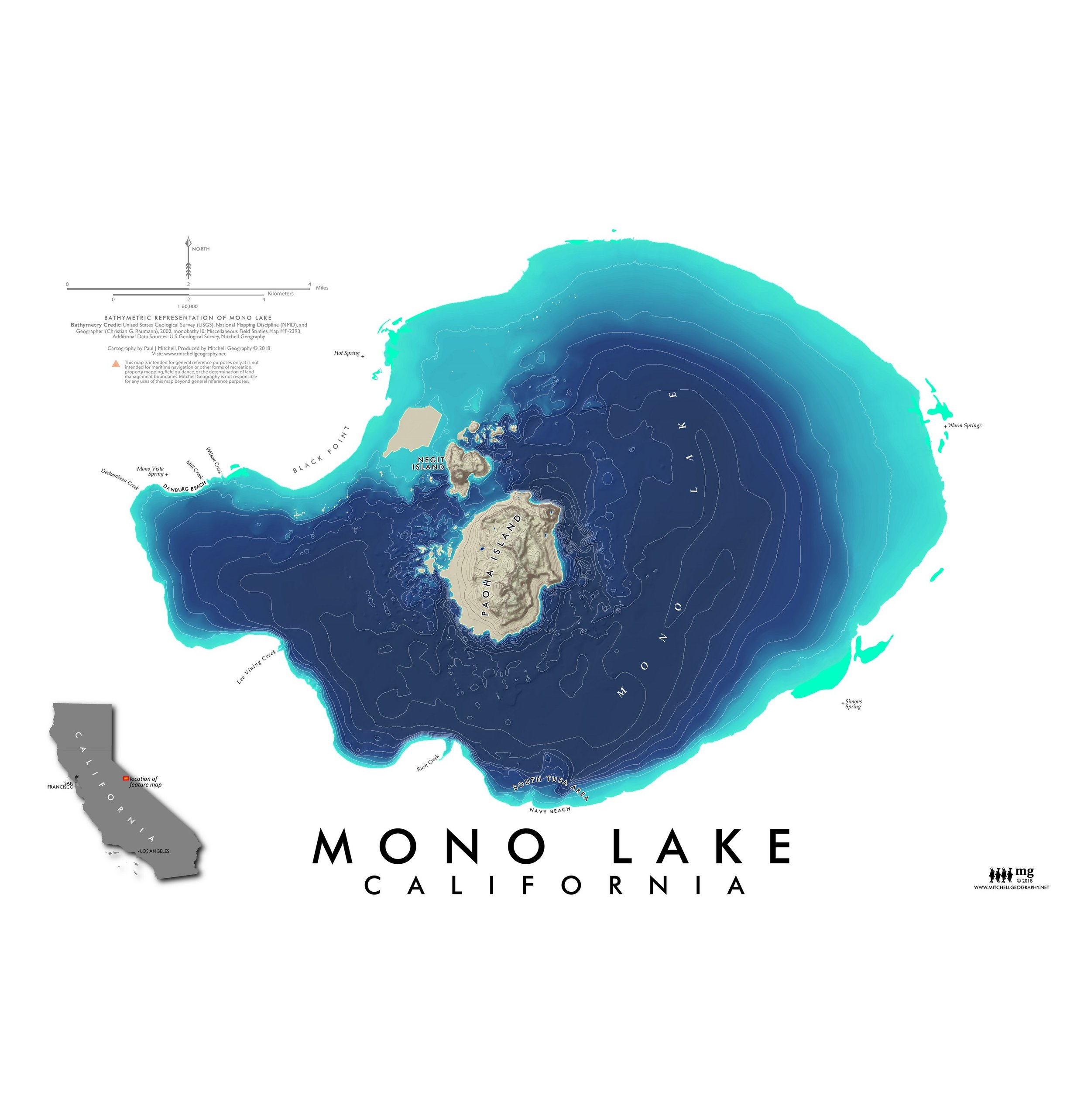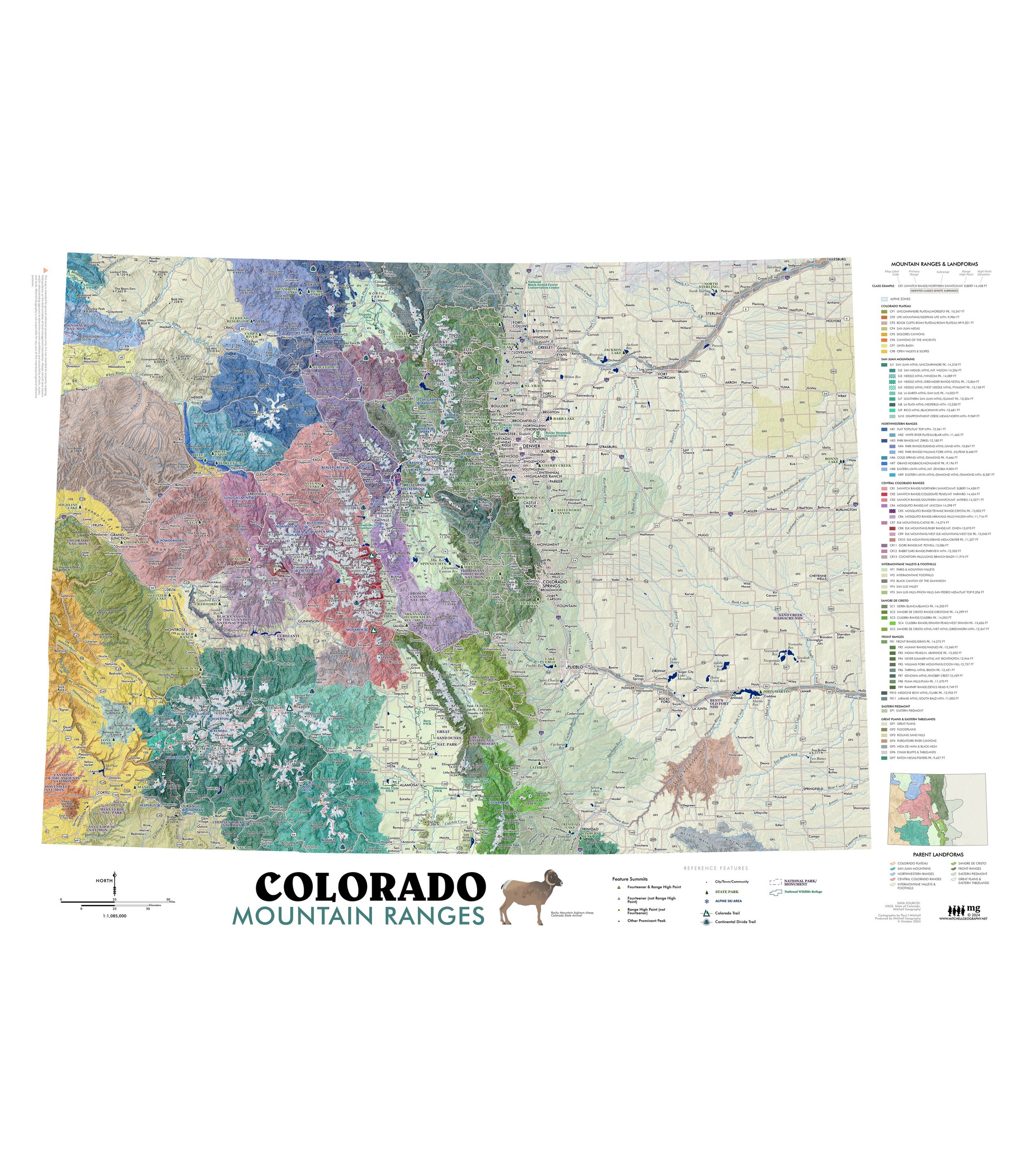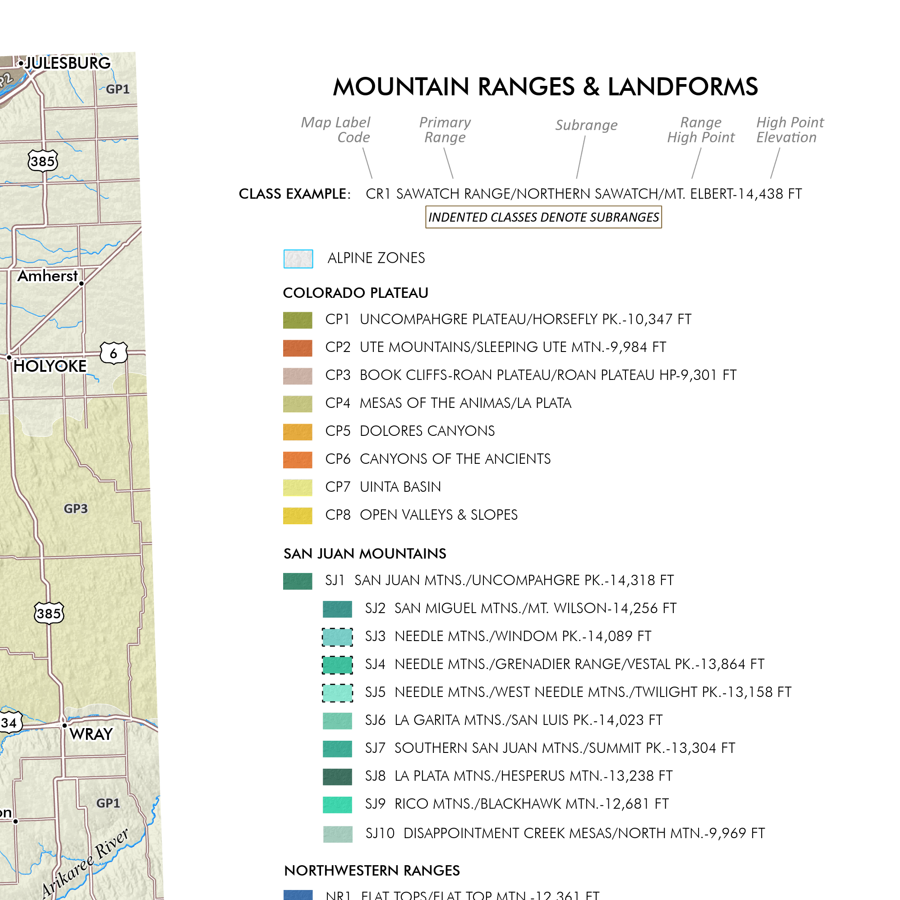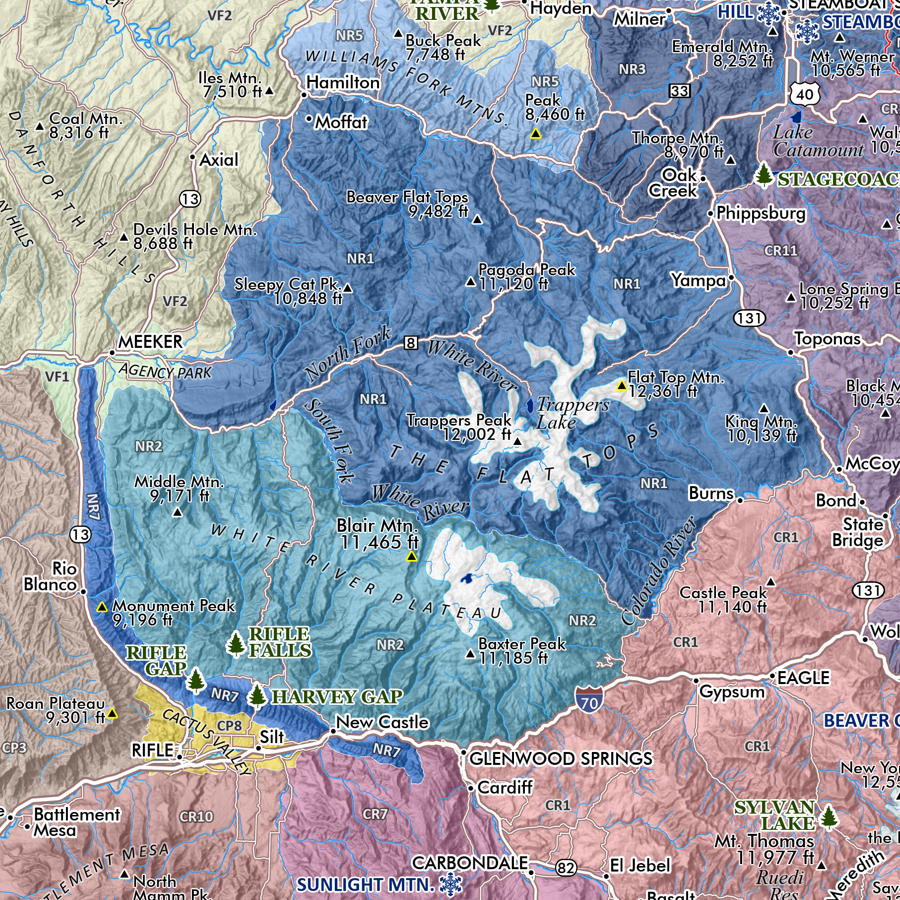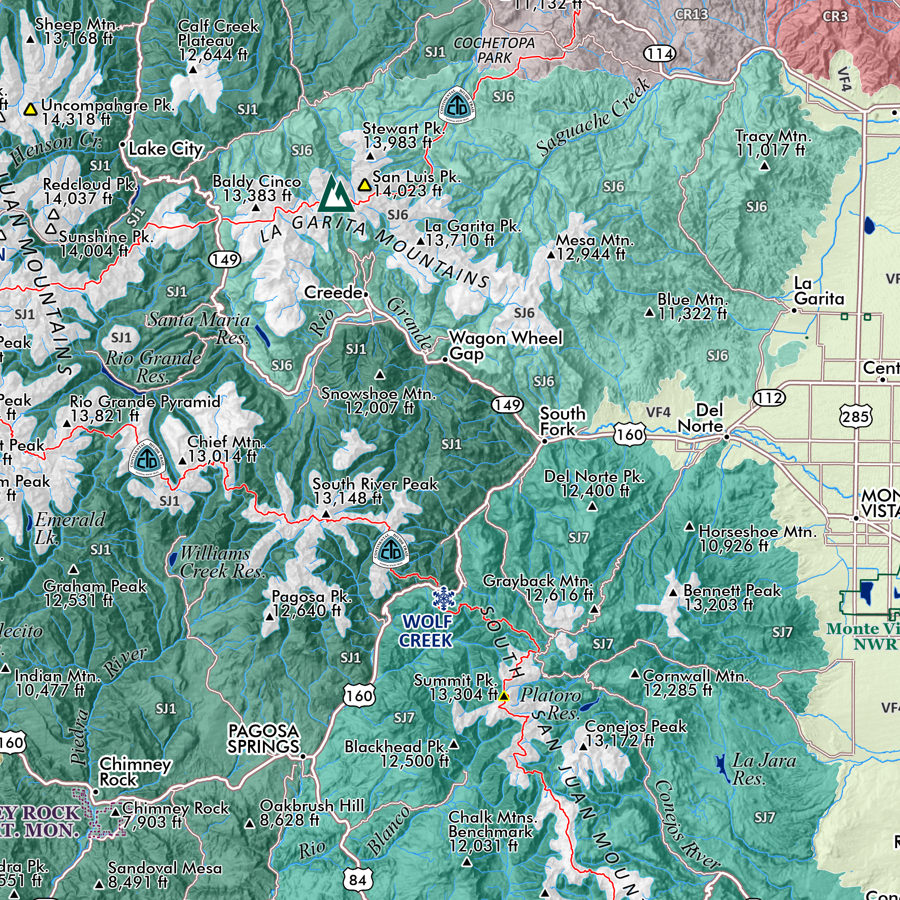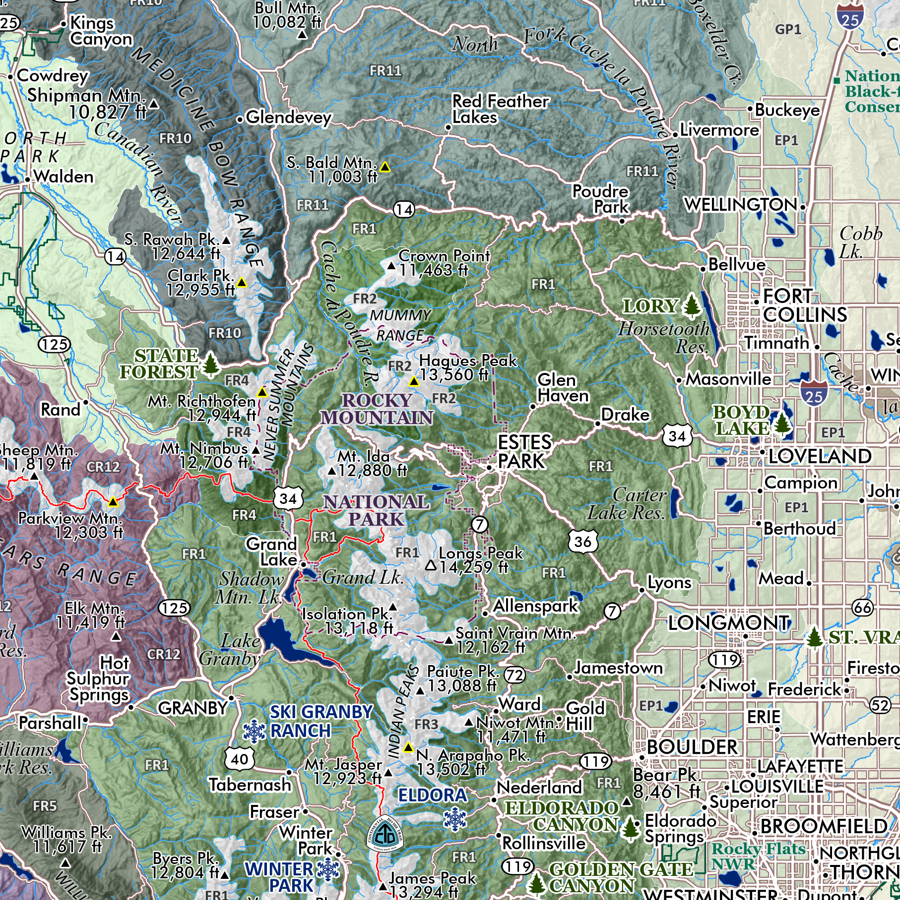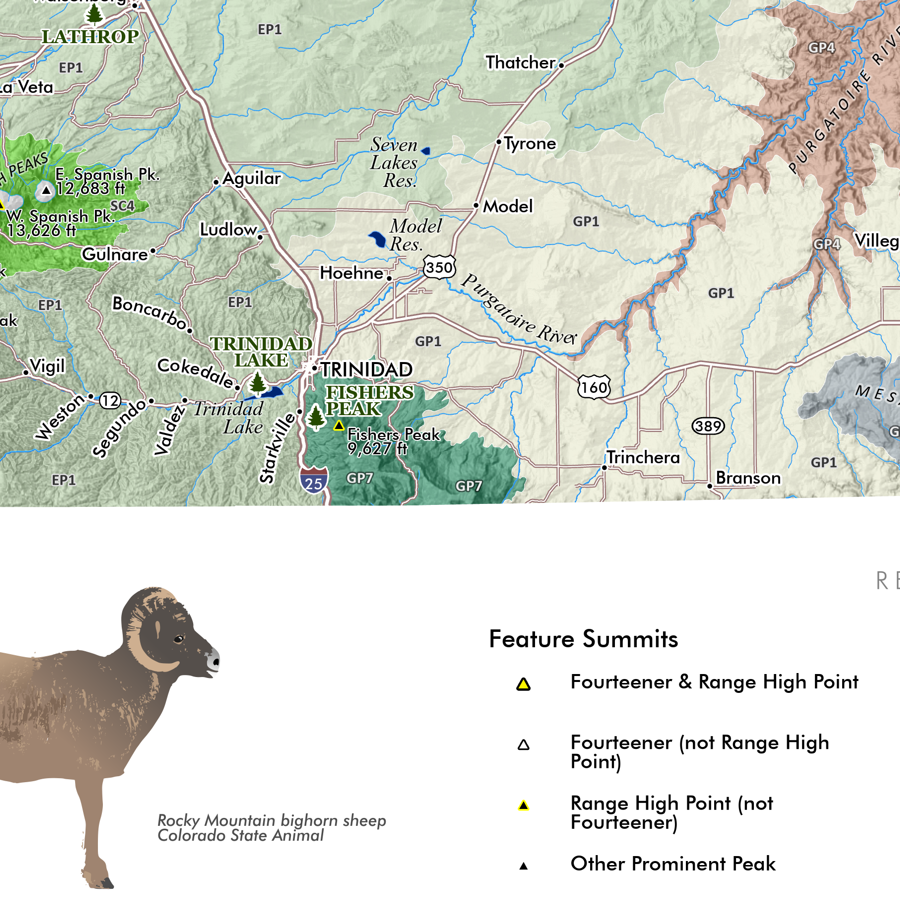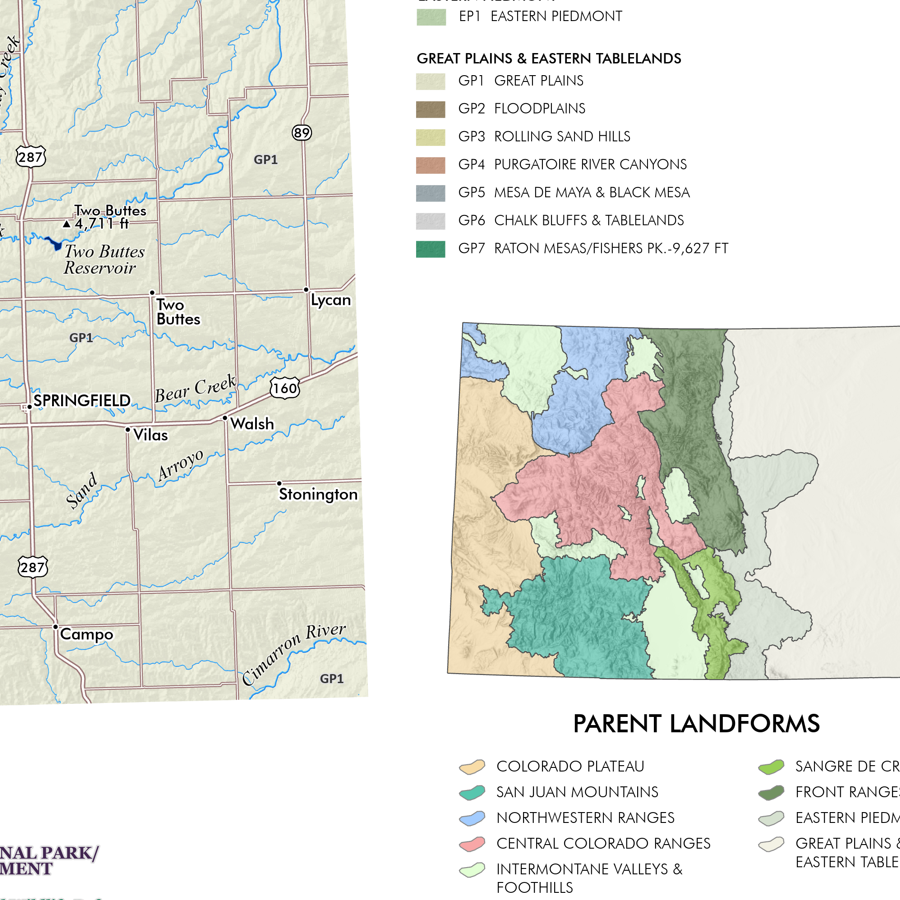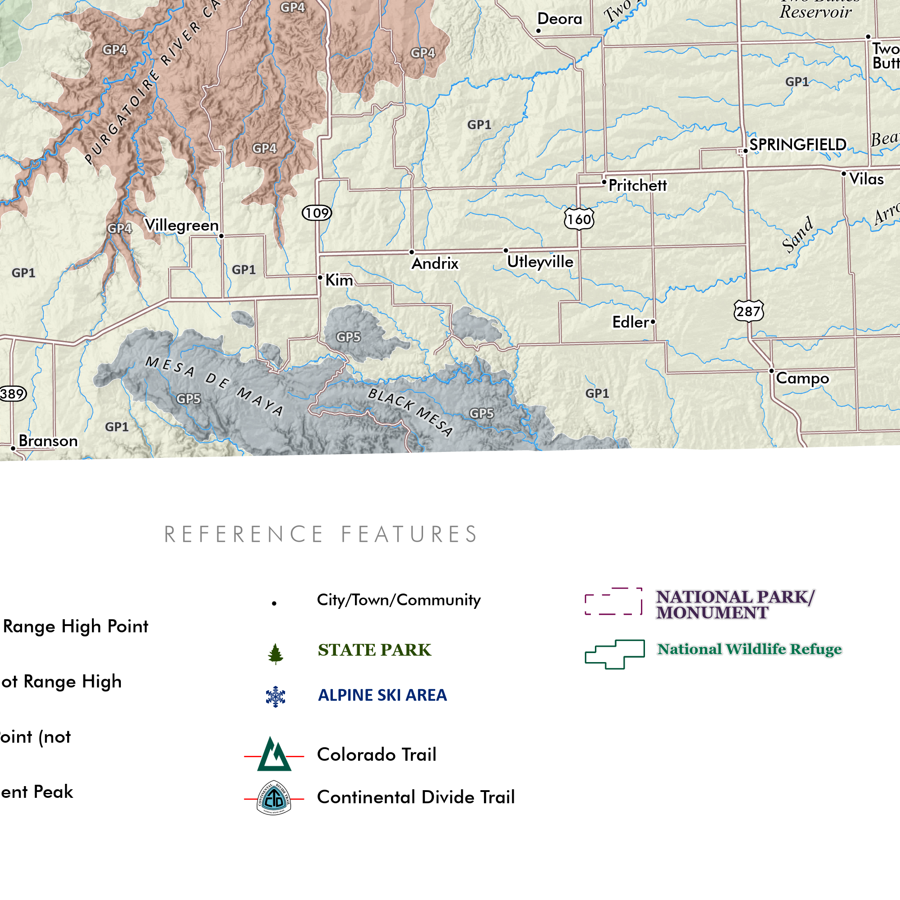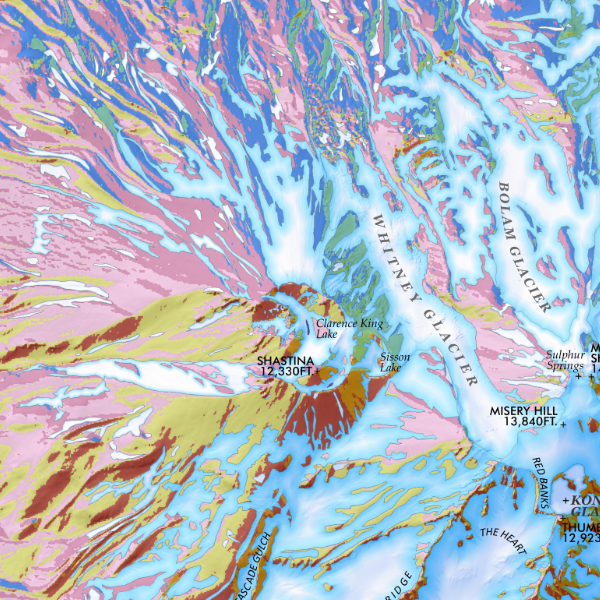Moab Utah (24 in x 20 in)
24 in x 20 in flat wall map. Shipped rolled.
1:175,000
Feature overview map of the Moab, Utah region. This wall map is well researched & richly detailed — to include travel routes (non-motorized trails, OHV trails, tracks, and primary roads), unique landforms (arches, pillars, etc.) alongside larger landscape features (La Sal Mountains, The Needles, etc.), and special land management classes such as national parks and BLM WSAs.
Taking in the diverse landscapes surrounding Moab this map’s wide extent includes the La Sal Mountains on the East, to Labyrinth Canyon Wilderness along the Green River in the West; from The Poison Strip/Yellow Cat Road area in the North, to the town of Monticello in the South. Within are the boundaries of Arches National Park, Dead Horse Point State Park, Sand Flats Recreation Area, the Manti-La Sal National Forest section of the La Sal Mountains, the majority of Canyonlands National Park (Horseshoe Canyon Unit is excluded), northern portions of Bears Ears National Monument, numerous BLM Wilderness Study Areas (Lost Spring Canyon, Grandstaff Canyon, Mill Creek Canyon, Behind the Rocks, Bridger Jack Mesa, Butler Wash, Dark Canyon ISA Complex), and portions of the Manti-La Sal NF in the Abajo Mountains.
The richly detailed annotations include site specific natural landforms (canyons, mesas, plateaus, summits, arches, pillars, washes, etc.) and a diverse range of cultural sites (trailhead point locations, overlooks, popular petroglyphs, and other points of reference as scale permits). Primary and well travelled 2WD passenger car roads are mapped and labelled. Trails, routes, and tracks are symbolized and trailheads are symbolized by designation and/or primary use. (Due to recent and potential future changes in BLM road and land management practices - it is recommended that all users confirm accessibility and current conditions with managing agencies.) Perennial and intermittent rivers and creeks are as well mapped and labelled. The map’s extent captures the Colorado River’s traverse from east to west and the lower canyons of the Green River meeting at their confluence within Canyonlands National Park.
A smaller 13 in x 19 in version of this map (without trails and tracks) is also available.
24 in x 20 in flat wall map. Shipped rolled.
1:175,000
Feature overview map of the Moab, Utah region. This wall map is well researched & richly detailed — to include travel routes (non-motorized trails, OHV trails, tracks, and primary roads), unique landforms (arches, pillars, etc.) alongside larger landscape features (La Sal Mountains, The Needles, etc.), and special land management classes such as national parks and BLM WSAs.
Taking in the diverse landscapes surrounding Moab this map’s wide extent includes the La Sal Mountains on the East, to Labyrinth Canyon Wilderness along the Green River in the West; from The Poison Strip/Yellow Cat Road area in the North, to the town of Monticello in the South. Within are the boundaries of Arches National Park, Dead Horse Point State Park, Sand Flats Recreation Area, the Manti-La Sal National Forest section of the La Sal Mountains, the majority of Canyonlands National Park (Horseshoe Canyon Unit is excluded), northern portions of Bears Ears National Monument, numerous BLM Wilderness Study Areas (Lost Spring Canyon, Grandstaff Canyon, Mill Creek Canyon, Behind the Rocks, Bridger Jack Mesa, Butler Wash, Dark Canyon ISA Complex), and portions of the Manti-La Sal NF in the Abajo Mountains.
The richly detailed annotations include site specific natural landforms (canyons, mesas, plateaus, summits, arches, pillars, washes, etc.) and a diverse range of cultural sites (trailhead point locations, overlooks, popular petroglyphs, and other points of reference as scale permits). Primary and well travelled 2WD passenger car roads are mapped and labelled. Trails, routes, and tracks are symbolized and trailheads are symbolized by designation and/or primary use. (Due to recent and potential future changes in BLM road and land management practices - it is recommended that all users confirm accessibility and current conditions with managing agencies.) Perennial and intermittent rivers and creeks are as well mapped and labelled. The map’s extent captures the Colorado River’s traverse from east to west and the lower canyons of the Green River meeting at their confluence within Canyonlands National Park.
A smaller 13 in x 19 in version of this map (without trails and tracks) is also available.
24 in x 20 in flat wall map. Shipped rolled.
1:175,000
Feature overview map of the Moab, Utah region. This wall map is well researched & richly detailed — to include travel routes (non-motorized trails, OHV trails, tracks, and primary roads), unique landforms (arches, pillars, etc.) alongside larger landscape features (La Sal Mountains, The Needles, etc.), and special land management classes such as national parks and BLM WSAs.
Taking in the diverse landscapes surrounding Moab this map’s wide extent includes the La Sal Mountains on the East, to Labyrinth Canyon Wilderness along the Green River in the West; from The Poison Strip/Yellow Cat Road area in the North, to the town of Monticello in the South. Within are the boundaries of Arches National Park, Dead Horse Point State Park, Sand Flats Recreation Area, the Manti-La Sal National Forest section of the La Sal Mountains, the majority of Canyonlands National Park (Horseshoe Canyon Unit is excluded), northern portions of Bears Ears National Monument, numerous BLM Wilderness Study Areas (Lost Spring Canyon, Grandstaff Canyon, Mill Creek Canyon, Behind the Rocks, Bridger Jack Mesa, Butler Wash, Dark Canyon ISA Complex), and portions of the Manti-La Sal NF in the Abajo Mountains.
The richly detailed annotations include site specific natural landforms (canyons, mesas, plateaus, summits, arches, pillars, washes, etc.) and a diverse range of cultural sites (trailhead point locations, overlooks, popular petroglyphs, and other points of reference as scale permits). Primary and well travelled 2WD passenger car roads are mapped and labelled. Trails, routes, and tracks are symbolized and trailheads are symbolized by designation and/or primary use. (Due to recent and potential future changes in BLM road and land management practices - it is recommended that all users confirm accessibility and current conditions with managing agencies.) Perennial and intermittent rivers and creeks are as well mapped and labelled. The map’s extent captures the Colorado River’s traverse from east to west and the lower canyons of the Green River meeting at their confluence within Canyonlands National Park.
A smaller 13 in x 19 in version of this map (without trails and tracks) is also available.


